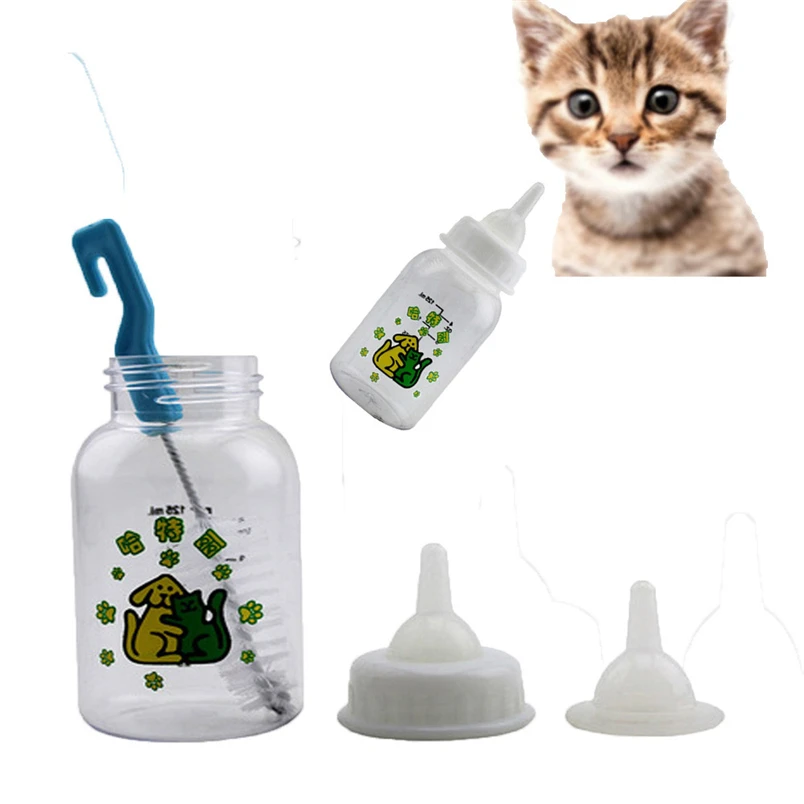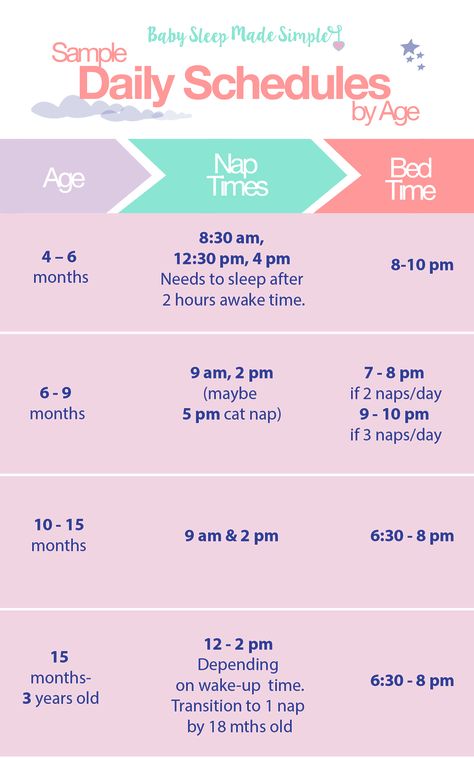Baby wide awake after night feeding
5 Steps to Correct Your Newborn's Day-Night Confusion
Do you have a newborn who likes to sleep all day and be up all night? You’re not alone. Day-night confusion is so common in newborns.
Let's talk about why day-night confusion happens and tips to help.
Why do newborns experience day-night confusion? #
As adults, we have an internal clock known as the circadian rhythm. That circadian rhythm is regulated by our hormones, including the sleepy hormone, melatonin. It's also driven by the light and darkness outside and the schedule you typically follow. Do you find yourself waking up on the weekend at the same time your alarm normally goes off during the week? This is your circadian rhythm in action.
Your newborn doesn’t have this rhythm quite yet. They are still developing that internal clock that tells them it’s time to sleep, and those sleepy hormones aren’t regulated until closer to 3-4 months. This is why we see babies who sleep all day and are up all night.
How do you fix your newborn being up all night?#
1. Start your day no later than 7:00-8:00 a.m. #
I know this will feel so hard. Maybe you’ve been up every hour or awake since 4 a.m. with your newborn. Starting your day early is the LAST thing you want to do, especially when your baby is finally sleeping.
But remember, your goal is to break the cycle of your newborn being up all night. And since your baby relies on you for external cues about the difference between day and night, starting early is the first step. This allows for your baby to have a full day before bedtime.
2. Offer full feedings during the day.#
Many times newborns who’ve been up all night LOVE to snack. Maybe you’ve seen this? Your baby wakes up for a short time, eats, drifts back to sleep, and continues this cycle all day and all night. They eat just enough to take the edge off their hunger. Instead of allowing for snacking and sleepy eating, we want to really encourage full feedings.
3. Be intentional with your wake windows during the day.#
Understanding wake windows and sleepy cues can help you get that much-needed awake time for your baby without making him overtired.
Your newborn’s wake windows will be short at first. Here are common wake windows by age for those first few months.
0-4 Weeks: 35-60 minutes
4-12 Weeks: 60-90 minutes
3-4 Months: 75-120 minutes
It may feel like feeding takes up that whole wake window at first, but try to incorporate at least a few minutes of newborn play. This active awake time cues your newborn that daytime is for playing and interaction.
4. Use light and darkness to your advantage.#
Light and darkness are the perfect visual cues for your newborn that day is for playing and night is for sleeping. Using natural daylight as well as lights around your home stimulates your baby’s brain.
Use daylight during the day to help your baby stay awake.
 Open your curtains, switch on your lamps. Help your newborn understand that light means it’s time to be up, play, and interact. If the weather is nice, go outside for some air and sunshine.
Open your curtains, switch on your lamps. Help your newborn understand that light means it’s time to be up, play, and interact. If the weather is nice, go outside for some air and sunshine.You don’t need to have a light, bright room for naps. We still want a dark environment for naps so your baby can rest.
As you get your newborn ready for bed at night, dim the lights around your home. Dimming the lights around the house and making it darker is a great external cue that it's time to get into our jammies and go to sleep. One way to do this is to start a bedtime routine.
Try to maintain the lowest light possible – that is safe for you and your baby – during night feedings and diaper changes. A great low light alternative is a red light bulb, which is not nearly as stimulating to the brain. You can simply swap out a regular light bulb for a red one or get a nightlight where you can choose the color.
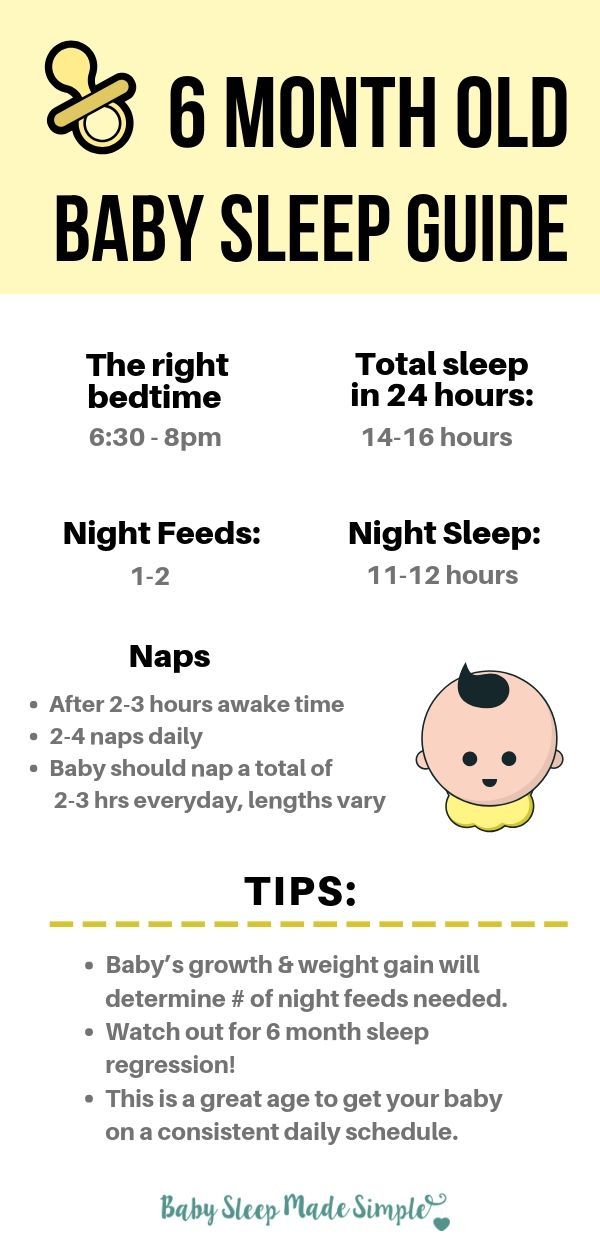
5. Take my newborn class.#
In this class, I’ll give you the tools you need to conquer day-night confusion, read your baby's sleepy cues, set a flexible sleep schedule, calm a fussy baby, and – best of all – LOVE the newborn stage.
How long does newborn day-night confusion last?#
Every baby is different. Some newborns adjust in just a few days, and others take a little longer. Implementing these tips will help you move in the right direction as quickly as possible. I know that newborn day-night confusion can feel tough, but don’t forget that there is no better parent on the planet for that baby than you.
Is your baby wide-awake (but happy) for hours in the middle of the night?
These 2 a.m. crib parties are actually called "split nights," and here's how to fix it.
It’s 2 a.m. and my six-month-old daughter is wide awake. She isn’t crying, and she isn’t hungry—she’s perfectly happy to be hanging out, as long as I don’t leave her alone.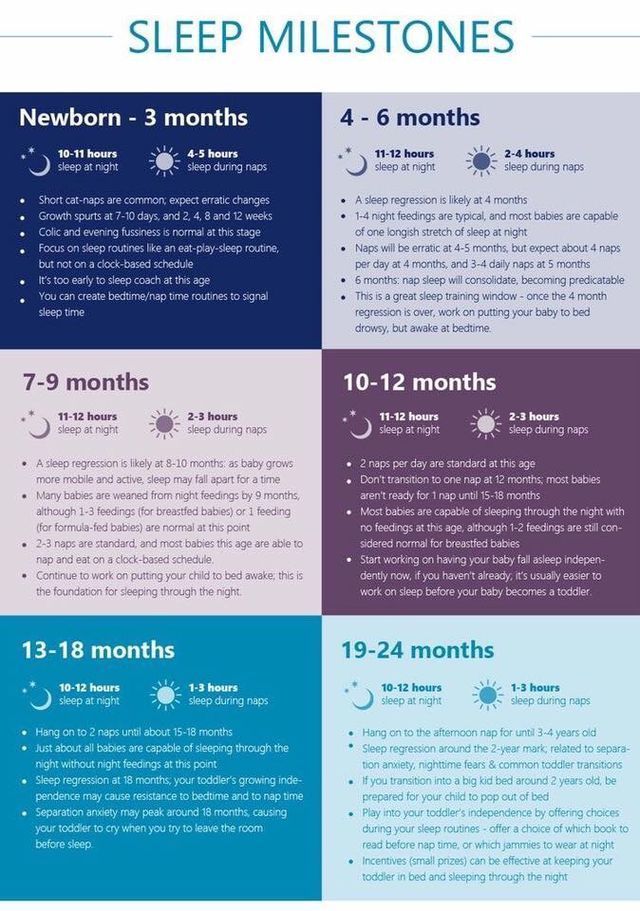 But we are on hour two of this wide-awake, ready-to-party mode, and it’s the middle of the night. No matter how much I shush, pat, hum or feed her, her little eyeballs are peeled open. It’s not until we pass the two-hour mark that she begins to yawn and rub her eyes, and I know she’ll finally go back to sleep.
But we are on hour two of this wide-awake, ready-to-party mode, and it’s the middle of the night. No matter how much I shush, pat, hum or feed her, her little eyeballs are peeled open. It’s not until we pass the two-hour mark that she begins to yawn and rub her eyes, and I know she’ll finally go back to sleep.
Like usual, she’d gone down easily at the beginning of the night. It’s become a pattern for us: After our standard evening bedtime routine, I settled into the couch for some kid-free time to relax and re-watch Downton Abbey. But a few hours after I put myself to bed, my daughter inevitably wakes up. She’s happy as can be and ready to play, inspecting the lamb sewn on her sleep sack, even laughing as the cat walks by her crib.
After some Googling, and speaking with sleep consultants, I now know there’s a term for this particular baby sleep phenomenon: split nights.
What are split nights?Split nights, segmented sleep, bifurcated sleep—no matter what you call it, it’s frustrating and exhausting to put your baby to bed, only to have them wake in the wee hours of the morning and stay awake for an hour or more.
Sometimes a baby simply has an off night—we all do! Maybe it’s digestive discomfort or a growth spurt. Perhaps they’re working on a new skill. Underlying issues can cause nighttime wakings for up to two weeks. But if this has been going on for more than two weeks, and it’s happening at least five nights a week, sleep experts agree that it’s probably a split nights issue.
What causes split nights?Two biological aspects drive sleep: circadian rhythm (our natural tendency to sleep when it’s dark, spurred by the release of melatonin hormones) and sleep pressure (which builds while we are awake). Normally, pressure builds during the day, your baby goes off to dreamland, and when the pressure subsides, circadian rhythm and melatonin take over. A split night results when these two drivers stop working in sync.
Most often, split nights have to do with daytime sleep—meaning, how much your baby is napping during the day.
“We hear about these sleep totals, say 14 hours in 24 hours, so parents tend to focus on long naps,” says Lauren Heffernan, a Toronto-based certified pediatric sleep specialist with Isla Grace Sleep. But this can actually result in too much daytime sleep. If you have five hours total of naps during the day, she explains, then you’re basically deducting those five hours off their nighttime sleep. With only nine hours of sleep left, they’re waking up partway through the night feeling refreshed, and it takes time for their sleep pressure to build again.
But this can actually result in too much daytime sleep. If you have five hours total of naps during the day, she explains, then you’re basically deducting those five hours off their nighttime sleep. With only nine hours of sleep left, they’re waking up partway through the night feeling refreshed, and it takes time for their sleep pressure to build again.
Another big reason for a split night is a too-early bedtime. On a bad nap day, you might move bedtime up to be earlier, sure. Doing this once in a while is great—but when it becomes a pattern, it too can result in split nights, since your baby is spending more time in bed than they need, explains Amanda Jewson, a sleep consultant in Stratford, Ont. with Baby’s Best Sleep. “Every child has a total amount of sleep in them, and we have to aim for prime sleep pressure all the time. It becomes a mathematical equation.”
How do I fix my baby’s split nights?You’re going to need to adjust daytime sleep totals and your baby’s bedtime.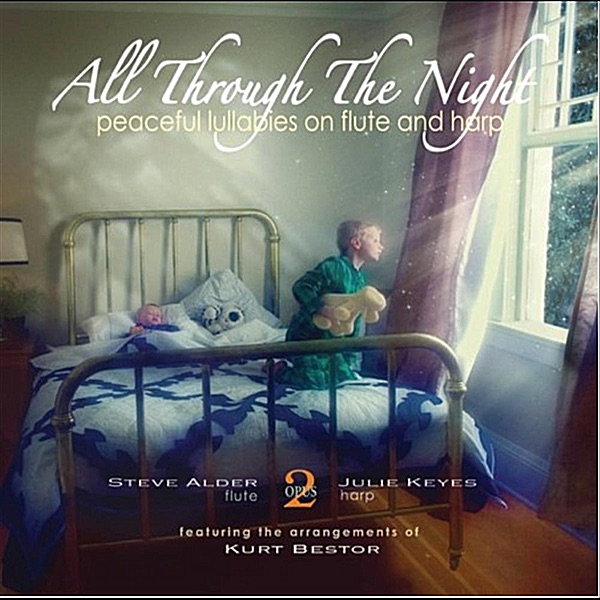 The Canadian Paediatric Society recommends 12 to 16 hours of sleep in a 24-hour period for babies four to 12 months, and 11 to 14 hours of total sleep for toddlers. In the case of split nights caused by too much daytime sleep, you’ll have to shorten each nap slightly by waking your baby before they’d normally rouse and extending or stretching the time before the next nap. (Remember that even a seemingly short nap of 30 to 45 minutes can be very restful, says Heffernan.)
The Canadian Paediatric Society recommends 12 to 16 hours of sleep in a 24-hour period for babies four to 12 months, and 11 to 14 hours of total sleep for toddlers. In the case of split nights caused by too much daytime sleep, you’ll have to shorten each nap slightly by waking your baby before they’d normally rouse and extending or stretching the time before the next nap. (Remember that even a seemingly short nap of 30 to 45 minutes can be very restful, says Heffernan.)
Of course, each baby is different and you may need to experiment with nap lengths and fiddle with your wake windows a few times before you find a schedule that allows your baby to build up sufficient pressure to stay asleep all night. This may also be achieved by dropping a nap altogether (depending on how old your baby is).
If you’ve been doing a fairly early bedtime, play with the nap schedule to transition to a consistently later bedtime. However, Jewson warns, you need to “avoid over-tiredness and under-tiredness, because both are just as deadly. ” You don’t want your baby to be so tired that they’re fussy, but they still need enough awake time in their day to prevent those middle-of-the-night crib parties.
” You don’t want your baby to be so tired that they’re fussy, but they still need enough awake time in their day to prevent those middle-of-the-night crib parties.
“I see it at all ages,” says Jewson—not just young infants. Before four months, split nights are totally normal. But from five months right through to toddlerhood, split nights are a possibility. “Even two year olds can experience 20 to 30 minutes of wakefulness and need support to get back to sleep,” says Heffernan.
Can I just wait it out?If your little one is an independent sleeper, they may stay awake happily on their own in their crib, while sleep pressure builds up. “Definitely check in on them, but if they’re happy and safe, it’s OK to let them hang out in their crib,” says Jewson. Other babies (like my daughter) get distraught if left alone. If they’re upset, create a connection point to help calm them, such as a soothing song or a long hug. If this is happening a few nights a week for only a week or two, it’s OK to just wait it out.
For some kids, nighttime is just too much separation. You can try to make their environment smell like you by placing a piece of your clothing near their crib, or putting some breast milk on their skin. Heffernan recommends making sure you and your baby have plenty of one-on-one time in the evening, if possible. “Sometimes, you’re running around the house all day, they feel disconnected, and they see nighttime as a way to connect—this is especially true for toddlers,” she says.
Can anything else cause night wakings?Always address underlying issues as well. But sometimes a feed or a middle-of-the-night diaper change can actually wake your baby up even more, extending the split night. (Of course if they truly need a new diaper or are hungry, that’s a different story.) But you should consider all options. Is your baby gassy from a new food? Are they getting enough milk? Are they experiencing reflux? Are they getting enough activity? This last one is a common cause for extended night wakings.
“During sleep, their brain is processing so much information, so if they wake, they might want to practice new skills, like rolling, sitting up or even chatting,” explains Jewson. Give your baby plenty of floor time to practice physical skills freely during the day. “A lot of the time, your baby is in a container—a Bumbo, a high chair, an Exersaucer—and the crib is the only open space they have to practice rolling, crawling, sitting and pulling up,” Heffernan adds.
Playing with nap times, wake windows and achieving a later (but consistent) bedtime should do the trick. If it doesn’t, Jewson recommends contacting your family health care provider to rule out physiological issues, such as sleep apnea. If you feel like you’ve done everything, calling a sleep consultant might be a good idea—doing the math with all these schedule adjustments can break your brain, especially if you’ve been up half the night.
Stay in touch
Subscribe to Today's Parent's daily newsletter for our best parenting news, tips, essays and recipes.
- Email*
- CAPTCHA
- Consent*
Yes, I would like to receive Today's Parent's newsletter. I understand I can unsubscribe at any time.**
FILED UNDER: baby development baby sleep health service seo Newborn sleep
Why does the baby not sleep after feeding?
Nikulina Anastasia Anatolyevna
pediatrician
Newborn not sleeping after feeding? Let's look at common sleep problems in infancy, as well as procedures and ways to try to calm the baby and fall asleep. The pediatrician Anastasia Anatolyevna Nikulina tells and advises.
— Anastasia Anatolyevna, why is it good for small children to sleep after feeding?
- Sleeping immediately after feeding is not good. But normal sleep for babies is an important factor. During sleep, babies grow and gain weight well. Sleep restores physical strength, energy. The brain is resting, the overexcitation goes away, the baby is not naughty and is in a good mood. A well-slept child develops comprehensively, actively shows interest in everything around.
The brain is resting, the overexcitation goes away, the baby is not naughty and is in a good mood. A well-slept child develops comprehensively, actively shows interest in everything around.
Without adequate sleep, there is no good physical development. If the baby does not sleep, he will be tired, moody, stop playing. He may suffer from frequent digestive problems and other illnesses.
— Why does a newborn sometimes not sleep after feeding?
- A newborn can normally stay up to 40 minutes between naps. If wakefulness lasts longer than the age norm, hunger should be excluded first of all. And if the baby is worried about reflux (regurgitation), he is not gaining weight well, you should consult a doctor.
Reasons why a newborn does not sleep after feeding and cries
- Can a child be forced to lie down if he does not sleep after eating? How to get a newborn to sleep?
— Forced laying exhausts both parents and children. Everyone falls asleep as soon as they get tired. Anxious parents interfere with their baby's sleep because anxiety is transmitted to him, and besides, excitement reduces the mother's milk production, so you need to calm down.
Everyone falls asleep as soon as they get tired. Anxious parents interfere with their baby's sleep because anxiety is transmitted to him, and besides, excitement reduces the mother's milk production, so you need to calm down.
How to help your baby fall asleep
- Motion sickness and calm song: babies love to be held and listen to their mother's soft voice. Intense motion sickness should be avoided: you can not shake the child, it can harm him.
- "White Noise": monotonous sounds on the same wavelength, which are reproduced by special devices, relax. But if the mother does not have such a device, you can go into the bathroom with the child, turn on the tap and turn off the light - the sound of water and the darkness will help calm him down.
- Tight swaddling: simulates the conditions when the baby was in the mother's stomach. Helps reduce the Moro reflex (protective reflex) and make it easier to fall asleep.
- Bathing: after bathing in warm water, children fall asleep more easily.
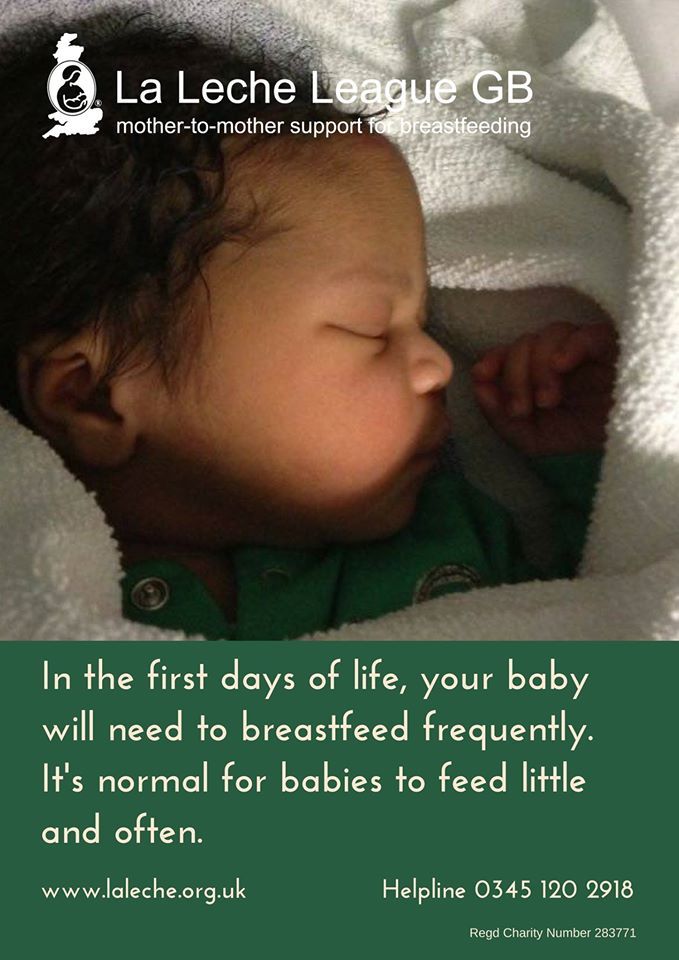 The pores of the skin are cleansed and open, the skin begins to breathe.
The pores of the skin are cleansed and open, the skin begins to breathe. - General light massage, play, crawling are tiring, and after them the baby will fall asleep safely.
— How to properly prepare a child for sleep?
— All children are different. It is important to observe the baby, note the time when he sleeps and eats, gradually form his sleep and nutrition regimen.
Signs that the child wants to sleep:
- starts to yawn;
- rubs eyes;
- is looking for a breast or bottle.
If these signs are ignored, the baby will cry and may even refuse the breast or bottle because he is tired and go to sleep hungry.
Getting ready for bed:
- try to put the baby to bed at the same time;
- a couple of hours before bedtime, play quiet games, read a book;
- a walk in the fresh air and water procedures are desirable, which relax and increase appetite;
- after a walk - evening feeding and a calm, prosperous sleep.

The sleep and feeding schedule will ease the rhythm of life, help you orient yourself, understand what else the child may experience discomfort from: for example, because of a wet diaper. The baby should not overeat or undereat - all this interferes with sleep. Mom should be next to her baby while falling asleep.
Parents should understand why the child does not want to sleep after feeding, and exclude the cause of his anxiety - hunger, poor health, lack of attention and care, or something else, and if the baby is sick, do not postpone a visit to the doctor. To establish a good sleep in a child, the daily routine and nutrition are also important. A bathed, fed, dry baby will fall asleep without stress for himself and his parents.
* Breast milk is the best food for babies. WHO recommends exclusive breastfeeding for the first 6 months of a child's life and continued breastfeeding after complementary foods are introduced until the age of 2 years. Before introducing new products into the baby's diet, you should consult with a specialist. The material is for informational purposes and cannot replace the advice of a healthcare professional. For feeding children from birth. The product is certified.
The material is for informational purposes and cannot replace the advice of a healthcare professional. For feeding children from birth. The product is certified.
#Tips for Mom #breast-feeding #colic #gaziki 7-12
See also
Principles of Successful Lactation: Mom's Checklist
#Tips for Mom #breastfeeding
Yakovenko Margarita Pavlovna
Candidate of Medical Sciences, Pediatrician, Pediatric Neurologist, Medical Advisor MAMAKO ®
Calendar of doctor visits during the first year of a child's life
#Advice for Mom
Kizino Polina Alexandrovna
pediatrician, perinatal psychologist
Neurologist for a child under one year old: first examination
#Tips for Mom #Baby Development
Yakovenko Margarita Pavlovna
Candidate of Medical Sciences, Pediatrician, Pediatric Neurologist, Medical Advisor MAMAKO ®
How to properly rock a baby to sleep
#Advice for Mom
Kizino Polina Aleksandrovna
pediatrician, perinatal psychologist
Digestion in newborns and infants and its features
#Baby Digestion #breast-feeding #baby formula #Lure #Tips for mom #Baby Development
Kiseleva Elena Sergeevna
Candidate of Medical Sciences, Scientific Advisor MAMAKO ®
Goat's milk in children's nutrition: for or against
#Food #Tips for mom #Baby digestion #breastfeeding
Javier Diaz Castro
professor, lecturer
Omicron in children: how dangerous it is and how babies get sick up to a year
#Advice for Mom
Kiseleva Elena Sergeevna
Candidate of Medical Sciences, Scientific Advisor MAMAKO ®
First tests and vaccinations: how to prepare yourself and your child
#Advice for Mom
Kizino Polina Alexandrovna
pediatrician, perinatal psychologist
How to tell if a baby has a food allergy
#allergy #Tips for mom #breast-feeding #baby formula #lure
Kiseleva Elena Sergeevna
Candidate of Medical Sciences, Scientific Advisor MAMAKO ®
Why DHA, ARA and lutein are added to infant formula
#baby formulas #Baby Development
Yakovenko Margarita Pavlovna
Candidate of Medical Sciences, Pediatrician, Pediatric Neurologist, Medical Advisor MAMAKO ®
See all
View all
Goat's milk in children's nutrition: for or against
# Lure # Tips for Mom # Baby's digestion # breastfeeding
Javier Diaz Castro
professor, lecturer
Digestion in newborns and infants and its features
# Baby digestion # breast-feeding # infant formula # Lure # Tips for Mom # Baby development
Kiseleva Elena Sergeevna
Candidate of Medical Sciences, Scientific Advisor MAMAKO ®
Neurologist for a child under one year old: first examination
# Tips for mom # Baby development
Yakovenko Margarita Pavlovna
Candidate of Medical Sciences, Pediatrician, Pediatric Neurologist, Medical Advisor MAMAKO ®
Calendar of doctor visits during the first year of a child's life
# Tips for mom
Kizino Polina Alexandrovna
pediatrician, perinatal psychologist
Principles of successful lactation: checklist for mom
# Tips for mom # breastfeeding
Yakovenko Margarita Pavlovna
Candidate of Medical Sciences, Pediatrician, Pediatric Neurologist, Medical Advisor MAMAKO ®
How to properly rock a baby to sleep
# Tips for mom
Kizino Polina Alexandrovna
pediatrician, perinatal psychologist
Why DHA, ARA and lutein are added to infant formula
# infant formula # Baby development
Yakovenko Margarita Pavlovna
Candidate of Medical Sciences, Pediatrician, Pediatric Neurologist, Medical Advisor MAMAKO ®
Omicron in children: how dangerous it is and how babies get sick up to a year
# Tips for mom
Kiseleva Elena Sergeevna
Candidate of Medical Sciences, Scientific Advisor MAMAKO ®
See all
First tests and vaccinations: how to prepare yourself and your child
# Tips for mom
Kizino Polina Alexandrovna
pediatrician, perinatal psychologist
How to tell if a baby has a food allergy
# allergy # Tips for Mom # breast-feeding # infant formula # lure
Kiseleva Elena Sergeevna
Candidate of Medical Sciences, Scientific Advisor MAMAKO ®
See all
View all
View all
Why a newborn does not sleep after feeding
It would seem that the life of a baby is very simple and is subject to the cycles of food and sleep - "food-sleep-food-sleep". As a rule, babies sleep after feeding - this is facilitated by melatonin contained in breast milk and sucking movements that help the baby relax. But sometimes it happens that after the mother has fed the baby, he does not fall asleep.
As a rule, babies sleep after feeding - this is facilitated by melatonin contained in breast milk and sucking movements that help the baby relax. But sometimes it happens that after the mother has fed the baby, he does not fall asleep.
Why does the baby not sleep after feeding? Misunderstanding of the reasons can alarm the mother, upset and even cause negative emotions.
The emotional reaction of the mother is explained by the fact that her idea of the picture of sleep and life in general of the newborn may differ from the real one. At such moments, a young mother may feel incompetent, be afraid for the child, think about whether everything is in order with him.
Mother's anxiety, in turn, is not only transmitted to the child due to the very close psycho-physiological connection of the mother with the newborn, but also affects breastfeeding.
A stressed mother transmits cortisol to the baby, which makes it difficult for him to fall asleep even after feeding. In addition, stress affects the work of oxytocin, the hormone responsible for the release of milk.
In addition, stress affects the work of oxytocin, the hormone responsible for the release of milk.
As a result, the mother, who is worried that the baby is not sleeping, not only does not help him fall asleep, but also involuntarily prevents him from calming down. What to do?
First of all, it is important for a mother to calm down herself. To do this, it is very important to take care of yourself - pour yourself a cup of your favorite hot tea, for example, take a warm shower, think about something very pleasant, look at the baby, walk around with him, looking at him. These methods also contribute to the stimulation of the production of oxytocin.
NEWBORN DOES NOT SLEEP AFTER FEEDING - HOW TO FIND THE REASON?
Keep a feeding calendar. So it will be easier to navigate the cycles of sleep and wakefulness of the baby and understand the reasons for such failures. For example, the baby woke up 10-15 minutes ago, his mother fed him, and he did not fall asleep. In this case, his wakefulness is justified - after all, the baby is simply not ready to sleep yet. Such a calendar can help you understand why the baby does not want to sleep after feeding.
In this case, his wakefulness is justified - after all, the baby is simply not ready to sleep yet. Such a calendar can help you understand why the baby does not want to sleep after feeding.
The reasons may be the following:
- The baby has just woken up and just wasn't awake enough and not ready for bed
- The child is overexcited. This happens in cases where the baby's wake time has significantly exceeded the allowable norm for his age, for example, a child who usually kept awake for 30 minutes was left without sleep for an hour. In this case, he can be very overtired and do not fall asleep against the background of overexcitation of the nervous system.
- The baby may have a stomach ache. This is especially true for formula-fed children when getting used to the mixture, as well as for babies with lactose deficiency. Soreness can also interfere with your baby's sleep.
- Clogged nose, disease can greatly complicate the process of falling asleep.

- The baby is hungry. If the child has not received the volume of milk or formula he needs, he may continue to feel hungry and not fall asleep because of this.
- Unmet need for suckling. The need for sucking in the first months of a child's life is very high. In the first month, sticking before falling asleep is not yet considered a negative habit, moreover, the baby needs to make sucking movements to relax. If the mother took the breast early and did not offer an alternative (such as a pacifier), it may be more difficult for the newborn to fall asleep.
- Uncomfortable sleep conditions. The baby's room may be too hot, stuffy, in addition, he may have clothes for sleep that are inappropriate for the season or a dirty diaper. All this affects the ability to sleep peacefully.
- The need for mother's affection and warmth
VIDEO LESSON
Baby sleep from 0 to 3 months
More
HOW DO YOU HELP YOUR NEWBORN TO SLEEP AFTER FEEDING?
- Keeping a diary of observations of the baby with a note of the time when he sleeps and eats
- Creation of favorable conditions for sleep - a safe place to sleep, darkness, silence, comfortable temperature (20-22 degrees) in the room, sufficient humidity in the room (40-60%), comfortable clothing for the season
- Help your baby meet the need to suckle. In the first month, it is still not recommended to offer a pacifier to babies who are breastfed, since lactation is established in the first two to three months. A bottle-fed baby needs a pacifier to satisfy the need to suckle.
In the first month, it is still not recommended to offer a pacifier to babies who are breastfed, since lactation is established in the first two to three months. A bottle-fed baby needs a pacifier to satisfy the need to suckle.
- Helping the baby to relieve tummy pain (colic) - let the baby "burp" the air after eating, vilify in his arms, apply a warm heating pad to the tummy. It is also important to clean the baby's nose with the help of special devices
- Try not to overexcite the baby, do not visit noisy places in the first month of life, when his wakefulness is still quite short.
- Feed your baby on demand. While lactation is established, it is important that the baby and mother adapt to each other in terms of milk production as well. Therefore, it is very important not to wean the baby prematurely, especially since hindmilk is saturated with fats that a growing baby needs.
You can determine the degree of his readiness to sleep by the following signs:
- The baby starts to yawn
- The baby rubs his eyes
- The baby is looking for his mother, poking her nose, looking for a breast or a bottle.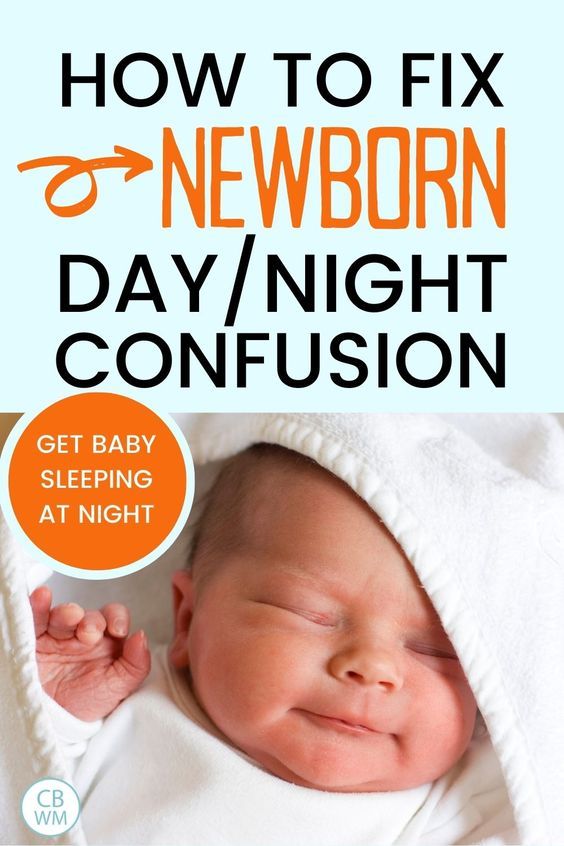
If you miss this time, signs of fatigue can develop into signs of overwork:
- The baby becomes more capricious
- The baby cries
- Can arch
- Can latch on and then push off
Overfatigue threatens with complicated falling asleep against the background of overexcitation of the nervous system. To help your baby calm down and fall asleep, moms can use a range of sleep aids.
- "White noise" - monotonous sounds on the same wavelength, which work as the right association for sleep, help to relax. If you don't have a white noise machine, just go into a dark bathroom and turn on the faucet. The darkness and the monotonous sound of running water will help the child relax and fall asleep.
- Motion sickness - in the womb, the baby is used to constant motion sickness, so motion sickness works to relax and fall asleep.
Do not abuse motion sickness, do not use too intense motion sickness (for example, on a fitball or special swings) and, moreover, never shake the child, it can be dangerous! Just walk around the room with the baby in your arms, softly hiss or sing a lullaby.
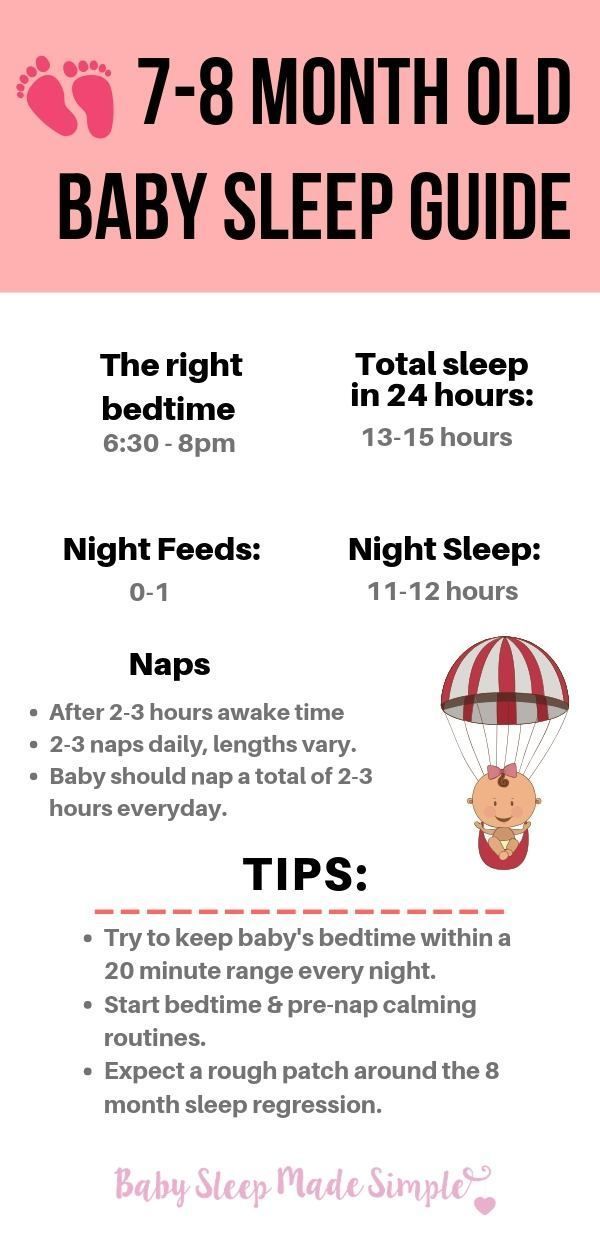
- Darkness. Babies in the first 3 months of life are not sensitive to the level of illumination in the room during sleep. But nevertheless, they are curious, every day they observe and notice more and more. Many objects can attract the attention of babies in the first months of life, frighten and distract from sleep. The simplest method of "turning off" the visual analyzer is to organize complete darkness in the bedroom for daytime and nighttime sleep.
- Closeness to mother , mother's hands, mother's warmth will help the baby feel safe and fall asleep.
- Soft Swaddling mimics uterine conditions well and helps to dampen the Moro reflex. If swaddling is organized safely, with the swaddling system available in our store, you can be sure that the baby will not overheat or the blood circulation will not be disturbed.
These conditions will remind the newborn of uterine conditions (dark, warm, cramped, and motion sickness), which will have a relaxing effect on the baby and help him fall asleep.
Sometimes it happens that young parents tend to overly scrupulously follow the norms given in encyclopedias on child care, on the Internet, on forums about motherhood. And, of course, these rules may vary. When parents do not have some unified theoretical base on which to rely, they can seek help from their parents - the older generation or friends, acquaintances, also parents. But here, too, the information can vary quite strongly - the older generation, for example, may advocate fairly tight swaddling and feeding the baby strictly by the hour, while modern approaches to caring for a newborn promote free swaddling and breastfeeding on demand.
Thus, despite the abundance of information, young parents are completely confused and do not understand how to feed their child and what to focus on in order to understand if everything is in order with him, from which he does not fall asleep after the mother has fed his.
Parent Alert:
- Trust trusted sources.
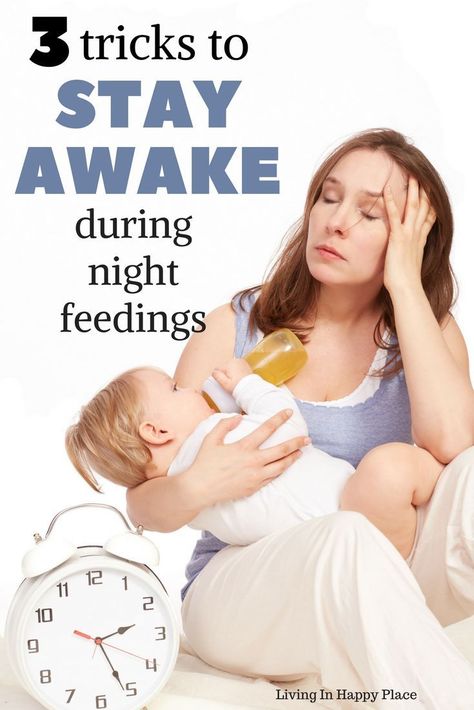 Watching weight norms, for example, it is worth trusting sources that have a large research base and grounds for certain indicators. For example, WHO is the World Health Organization.
Watching weight norms, for example, it is worth trusting sources that have a large research base and grounds for certain indicators. For example, WHO is the World Health Organization. - Remember that people on the forums, your acquaintances, friends, your parents are people who have other children. What works for them may not necessarily work for your baby.
- Observe your baby and keep a diary of observations. For example: woke up - 9:30, application - 9:45. So it will be easier for you to navigate if the baby bursts into tears at 10:00 - in this case, he is most likely not hungry yet, but is either already ready to sleep, or he, for example, has a wet diaper or some other discomfort.
- Find ways to relax yourself. The anxious brain is prone to making rash decisions, so rested, full of energy parents will be able to find the best solution in any situation with their child.
The most important thing that parents need to do in order not to worry about the fact that their baby does not sleep after being fed is trust in trusted sources of information, their own calmness, trust in their own parental wisdom and, of course, love and attention to your baby.

